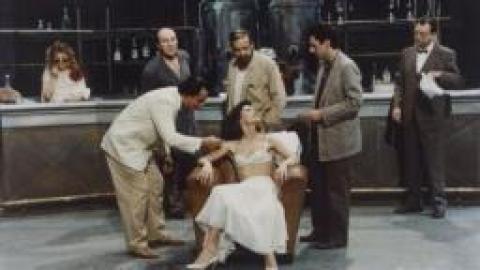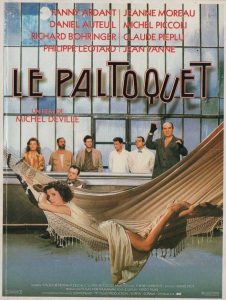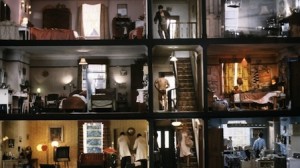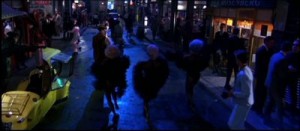Le paltoquet
From the June 10, 1988 Chicago Reader. — J.R.
One singular virtue of the French cinema compared to our own is the possibility of low-budget, offbeat projects that well-known actors are willing to participate in. Michel Deville’s very theatrical adaptation and direction of a whodunit novel by Franz-Rudolf Falk isn’t especially compelling as story telling, but it allows one to see eight of the best movie actors in France — Fanny Ardant, Daniel Auteuil, Richard Bohringer, Philippe Leotard, Jeanne Moreau, Michel Piccoli, Claude Pieplu, and Jean Yanne — acquitting themselves honorably; Ardant and Piccoli are particularly delightful. Better yet, it permits the neglected and prolific Deville to forge an interesting stylistic exercise in mise en scene, restricting most of the action to a cavernous bar resembling a warehouse. The dialogue bristles with breezy wordplay that is not easily translated (the title means “the nonentity,” and refers to Piccoli’s ambiguous role as bartender), but Deville’s ingenious use of ‘Scope framing in charting out the space keeps things lively, fluid, and unpredictable (1986). (Facets Multimedia Center’, 1517 W. Fullerton, Friday and Saturday, June 10 and 11, 9:00; Sunday, June 12, 7:30; and Monday through Thursday, June 13 through 16, 9:00; 281-4114)




